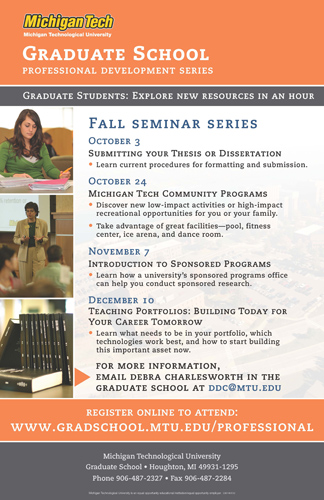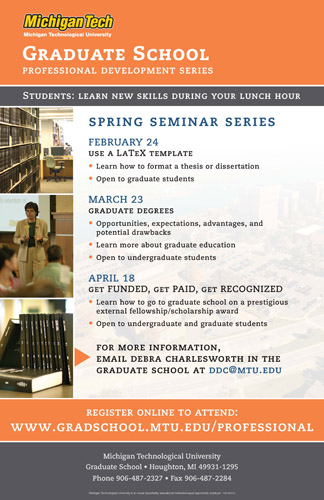
- November 7 | Introduction to Sponsored Programs
- Learn how a university’s sponsored programs office can help you conduct sponsored research.
- December 10 | Teaching Portfolios: Building Today for Your Career Tomorrow
- Learn what needs to be in your portfolio, which technologies work best, and how to start building
this important asset now.
- Learn what needs to be in your portfolio, which technologies work best, and how to start building
Students who are looking for ways to balance their work with healthy activities for them and their families, or for guidance on the thesis and dissertation submission process will find the other seminars in our series helpful:
- October 3 | Submitting your Thesis or Dissertation
- Learn current procedures for formatting and submission.
- October 24 | CANCELLED | Michigan Tech Community Programs
- Discover new low-impact activities or high-impact recreational opportunities for you or your family.
- Take advantage of great facilities—pool, fitness center, ice arena, and dance room.
Seating is limited. Register online to reserve your seat and receive an e-mail confirmation of the location.
Please contact Dr. Debra Charlesworth with any questions about the seminar series.
